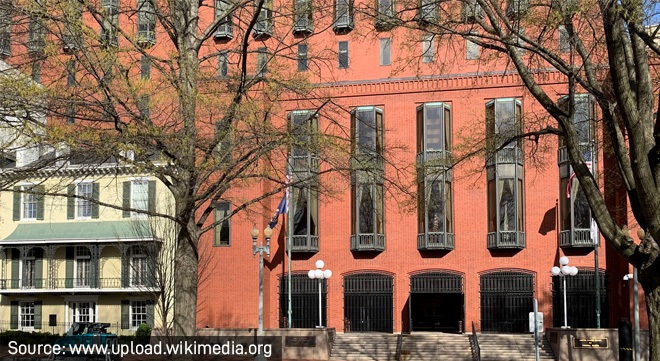The United States Court of Appeals for the Federal Circuit on Thursday granted a stay on a lower court’s decision that struck down President Donald Trump’s tariffs. This action temporarily reinstated the tariffs while the administration’s appeal is pending.
On 28 May, the US Court of International Trade declared the tariffs unlawful. It found that the administration had exceeded its authority under the International Emergency Economic Powers Act (IEEPA), which allows the president to regulate international commerce during a national emergency. This decision invalidated the tariffs, prompting an appeal from the administration to the Federal Circuit.
Read: Court strikes down Trump’s emergency tariffs as executive overreach
In its filing on 29 May, the administration argued that the IEEPA grants broad authority to regulate imports, including the imposition of tariffs, during a national emergency. It further asserted that lifting the tariffs would cause irreparable economic harm to US interests and disrupt ongoing trade policies.
The plaintiffs countered that the tariffs violated constitutional principles by circumventing Congress’s authority over trade and imposed substantial economic burdens on businesses and consumers.
The Federal Circuit’s decision hinged on several legal criteria.
It determined that the administration presented serious legal questions about the scope of the IEEPA and its application to tariffs. The court noted that further review was warranted to assess whether the statute’s language supports the administration’s actions.
The court accepted the administration’s argument that removing the tariffs could lead to significant economic disruption.
Weighing the economic costs to plaintiffs against the administration’s policy objectives, the Federal Circuit concluded that maintaining the tariffs served the public interest during the appeal process.
The court set an expedited briefing schedule, with the plaintiffs’ response due by 5 June, and the administration’s reply due by 9 June, underscoring the case’s urgency.
The Federal Circuit’s stay carries immediate and long-term consequences.
With the tariffs reinstated, businesses and consumers will continue to face higher costs for imported goods. Industries dependent on international supply chains are particularly affected.
The ruling sets the stage for a broader examination of executive power under the IEEPA. A final decision could clarify the extent to which the president can unilaterally impose trade measures without congressional approval.
The case is expected to progress to a full appeal, with potential escalation to the Supreme Court if either party seeks further review.
The tariffs and subsequent legal challenges reflect a contentious debate over US trade policy and the balance of power between the executive and legislative branches.
The IEEPA, enacted in 1977, has historically been used to address economic emergencies, but its application to broad tariffs marks a significant expansion of its scope. Critics argue that such actions undermine Congress’s constitutional role in regulating commerce, while supporters maintain they are necessary to address modern economic and security challenges.




